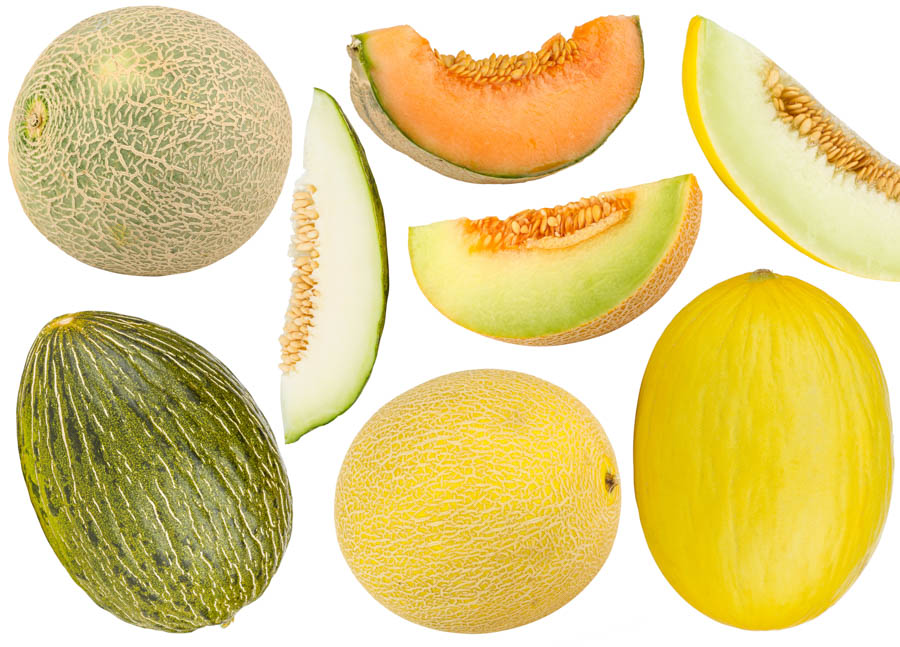Melon Varieties: A Quick Guide

GardenZeus earns commissions on sales made through links in this article. There is no additional cost to you.
How are melon and tomato alike? There is simply no comparison between the item purchased in the grocery store and the item harvested from your back yard. Commercial melons varieties are chosen for uniformity and productivity, and are then harvested and shipped before they are ripe. Homegrown varieties can be chosen for flavor, suitability for particular microclimates and disease resistance and can remain on the vine until fully ripe. Treat yourself and your family to one or more of these many exquisite melon varieties from the Cucumis melo species:
GardenZeus recommends Hale’s Best as a standout cantaloupe variety: Melon Muskmelon/Cantaloupe Hale’s Best has excellent smooth orange flesh with full melon flavor. Fruits grow from 3 to 5 pounds and plants tolerate both heat and drought. GardenZeus recommends Delicious 51 as a good open-pollinated variety that produces smaller 2 to 3 pound fruits in cooler climates and Ambrosia Hybrid as a producer of large 5 pounds fruits with good flavor and resistance to powdery mildew.
The excellent selection extends beyond the cantaloupes. Recommendations include: Melon Honeydew Sweet Delight (a Honeydew with traditional light green flesh); Melon Papaya Dew (a Honeydew with orange flesh with sublime tropical overtones); Golden Beauty Melon (a Casaba melon with yellow rind and white flesh, good for keeping); Crenshaw Melon (a Crenshaw with creamy, salmon aromatic flesh); and Melon Canary Tweety (a Canary melon with yellow rind and pale green to white flesh that tastes like cantaloupe with tropical overtones).
Two varieties popular at farmers’ markets and with local foodies are Charentais types and Snow Leopard F1 Hybrid. Snow Leopard is a variegated Honeydew with smooth ivory skin and jade markings, but with a somewhat sweeter taste than a typical Honeydew. It produces 2 pound fruits and has good resistance to Fusarium wilt. Lovers of true melon flavor should absolutely grow a superb French heirloom Charentais type. Charentais types cannot be grown commercially because they are too fragile to ship. These exceptional melons have light skins and creamy orange flesh. Fruits grow to 2 to 3 pounds. Try Melon Charentais or Petit Gris de Rennes.
GardenZeus has customized growing information by plant and zip code. To get started, enter your zip code here.
Other articles of interest:
Cantaloupes: An Overview of Cultural Requirements
The GardenZeus Guide to Watering Cucumbers, Melons and Squash (Cucurbits)

